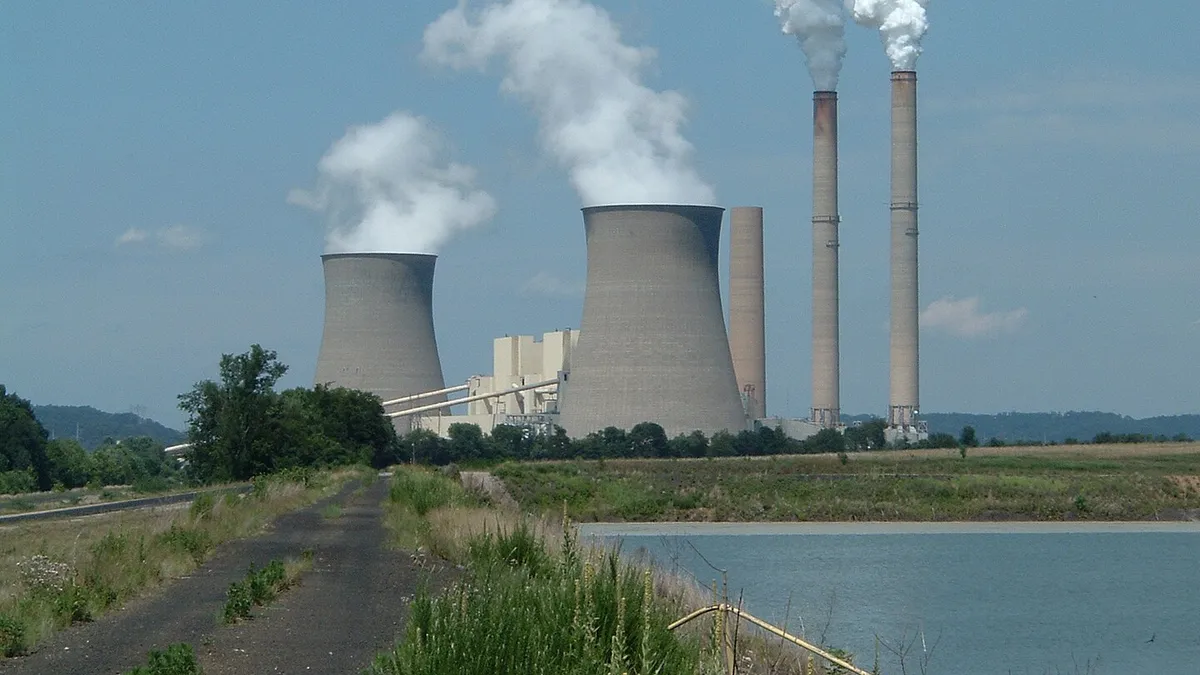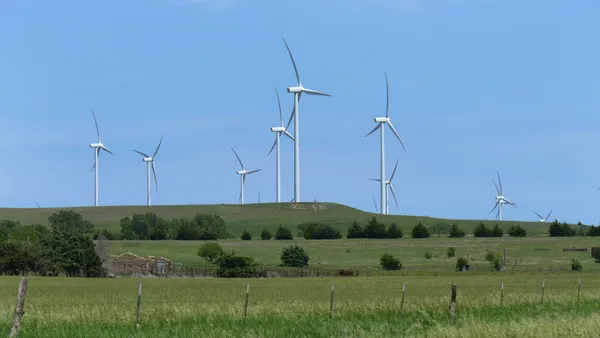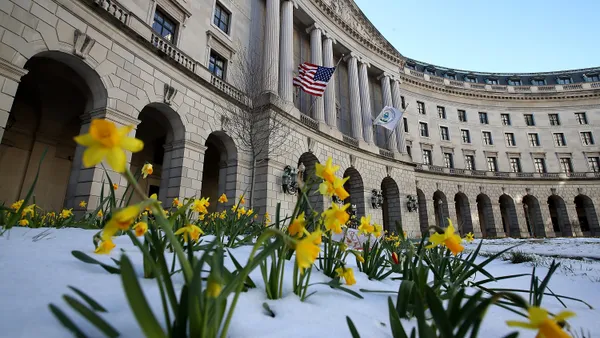Dive Brief:
- America’s Pledge, an initiative co-founded by California Gov. Jerry Brown and former New York City Mayor Michael Bloomberg, has released a report detailing “bottom-up” strategies for states, cities and businesses to take meaningful action on climate change. It’s a preview of a larger analysis of the effects of each strategy, set to be released in September at the Global Climate Action Summit.
- The report notes cities exercise "greater control over such economic factors as the sources and prices of electricity, modes of transportation, and climate resilience," making them key players in climate goals.
- The analysis covers 10 opportunities for action:
- Expanding renewable energy
- Accelerating retirement of coal power
- Retrofitting buildings for energy efficiency
- Electrifying buildings’ energy use
- Accelerating the adoption of electric vehicles
- Phasing out the use of hydrofluorocarbons (HFCs)
- Preventing methane leaks from gas wells
- Reducing methane leaks in cities
- Increasing carbon sequestration on land
- Establishing state and regional carbon markets
Dive Insight:
The America’s Pledge initiative was founded in the aftermath of President Trump’s decision to pull the U.S. out of the Paris climate accord — a decision that made cities among the key players in climate change efforts. The 'We Are Still In" coalition of local and state leaders has been pushing cities to make stronger climate change reduction goals, with some 200 mayors pledging to keep up the country’s goal to cut emissions 26% below 2005 levels by 2025.
A June study from the University of East Anglia found the city level would be most effective for emissions cuts, since cities are not only responsible for large emissions sources, but would be able to impose more precise pollution reduction policies with lower economic impact.
The new analysis emphasizes that strategies well within the purview of city governments can be effective in tackling climate change. For example, buildings are responsible for 28% of U.S. emissions through electricity and direct fuel use, and local governments and residential managers can help encourage retrofits that will make the buildings more efficient and run on renewable energy. The report highlights an effort taken by Chicago to audit energy use and incentivize retrofits on public and private facilities, which has already cut energy use by 18% across 60 city-owned buildings.
Likewise, the report notes cities and utilities can collaborate to identify and stop leaks of methane from natural gas pipelines underground, cutting down on emissions of the potent greenhouse gas. A project from New Jersey utility PSE&G helped identify and replace high emitting pipelines, reducing methane emissions from the utility's infrastructure by 83%.
"While the federal government ignores the existential threat of climate change, people across America are stepping up to drive down greenhouse gas emissions," said Brown in a press release. "This is profoundly important."















